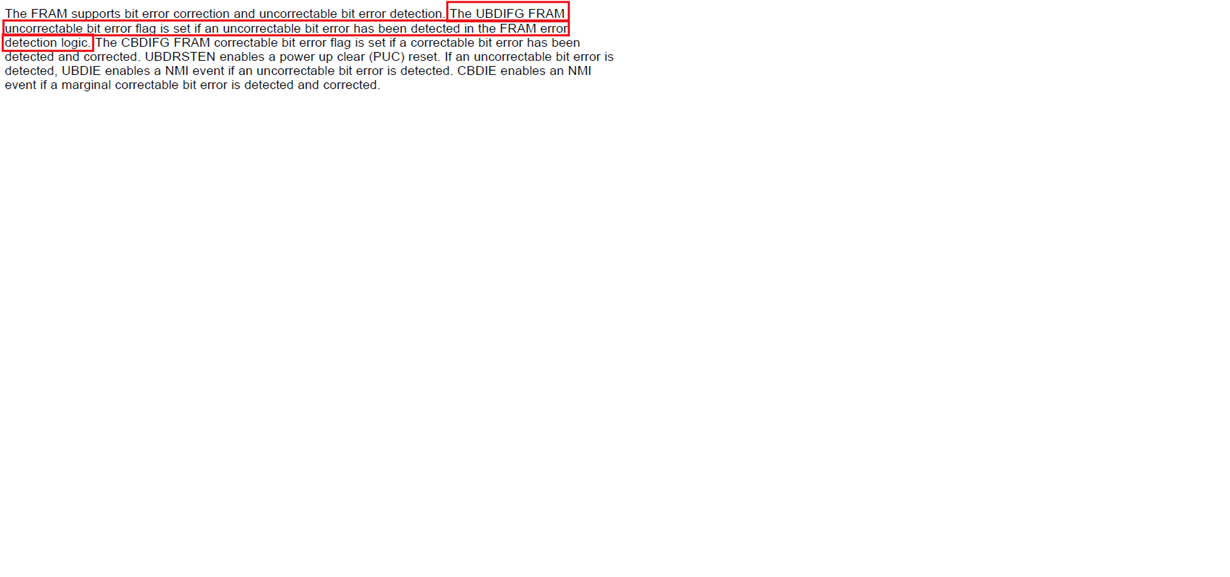Hi,
if I have GCCTL0.UBDIE = 0, GCCTL0.UBDRSTEN=0 and GCCTL0.CBDIE = 0, is it possible to have UBDIFG bit set by HW while the error reporting is turned OFF and later on when SW enables the Error reporting, for ex: sets GCCCTL0.UBDRSTEN = 1, then I get a PUC immediately. If so, it is safer to clear the UBDIFG before I turn ON the error reporting (PUC or NMI) right?
This in relation to the GC5 Errata, does it make sense to include clear the UBDIFG flag (any other FRAM error detection flags) before re-initializing the GCCTL0 to enable PUC generation? W.r.t GC5 errata work around how is it guaranteed that the first access to FRAM after wake up doesn't set the UBDIFG?
Best Regards
Santosh Athuru



